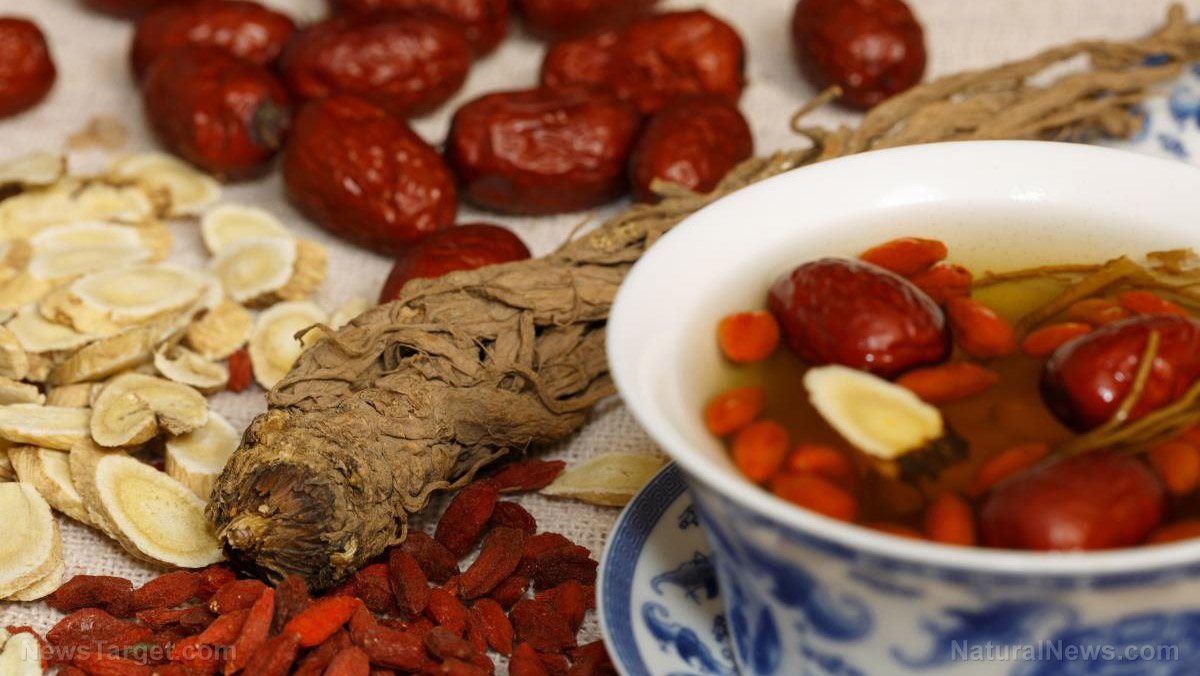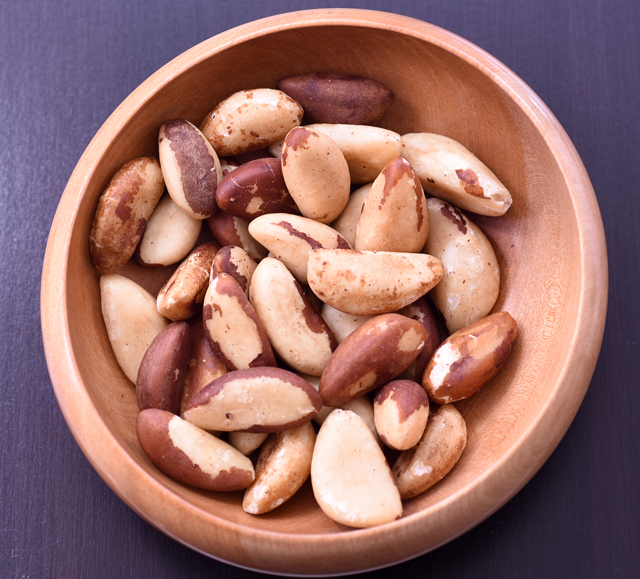Asian ginseng found to be effective for treating MS, autoimmune diseases
10/02/2019 / By Evangelyn Rodriguez

Panax ginseng, commonly known as Asian ginseng, is an herb used in traditional medicine to treat various ailments and replenish energy. Today, Asian ginseng is taken as a supplement to improve overall health and well-being. The roots of P. ginseng are an excellent source of bioactive components, such as ginsenosides, which are believed to be the main reasons for its health benefits. In a recent study published in The American Journal of Chinese Medicine, researchers from Jeju National University in South Korea continued their investigations on the therapeutic capacity of an acidic polysaccharide found in P. ginseng (APG). They tested this compound on a murine model that closely mimics the characteristics of relapsing-remitting multiple sclerosis (MS). They found that APG has the potential to treat MS as it can alleviate the symptoms of this disease.
Asian ginseng exhibits immunosuppressive activities in an experimental autoimmune encephalomyelitis animal model
The EAE model bears pathological and clinical similarities to human MS, and it is used in studies to test potential therapeutic agents for this chronic disease. In their previous study, the researchers used a model of primary progressive MS — C57BL/6 strain-dependent EAE — for their experiments. They discovered that APG confers protective effects and ameliorates the progression of EAE by inhibiting the proliferation of autoreactive T cells and the production of inflammatory cytokines, such as IFN-gamma, IL-17, and TNF-alpha. This, in turn, suppresses encephalitogenic response. Furthermore, they reported that APG is capable of promoting the generation of immunosuppressive regulatory T cells (Tregs) via the activation of the transcription factor, Foxp3. Tregs play a role in the regulation and suppression of other immune cells and help prevent autoimmune diseases.
To further test the therapeutic capacity of APG, the researchers used a murine model of relapsing-remitting experimental autoimmune encephalomyelitis (rr-EAE) in the present study. This model closely mimics the recurrent inflammatory demyelination lesions seen in relapsing-remitting MS. They reported that APG treatment significantly reduced clinical symptoms and the relapse rate of EAE compared with vehicle treatments. When they performed a histological examination, they found that APG markedly modulated the infiltration of CD4+ T cells and CD11b+ macrophages into the spinal cord. CD4+ T cells help B cells make antibodies, recruit white blood cells to sites of infection and inflammation, and produce cytokines and chemokines, which are involved in inflammation.
The researchers also found that APG treatment prevented demyelination and axonal damages in the central nervous system (CNS). In addition, they observed that APG decreased the proliferation of peripheral proteolipid protein (PLP)-reactive T cells and the production of pro-inflammatory factors. PLP-reactive T cells can be found at high concentrations in the cerebrospinal fluid of most MS patients. A strong and persistent autoimmune response to PLP is suspected to be important in the pathogenesis of MS. The researchers noted that the ability of APG to induce clinically beneficial effects to distinct types of EAE furthers their understanding on the basis of its immunosuppression in EAE and, possibly, in MS.
Based on these findings, the researchers concluded that APG can serve as a new therapeutic agent for MS and other human autoimmune diseases. They believe that APG should be further evaluated for its therapeutic application. (Related: Both American and Asian ginseng are effective at treating fatigue in people with chronic illness.)
The benefits of using Asian ginseng
Asian ginseng is a member of the Araliaceae family and is closely related to American ginseng (Panax quinquefolius), which is commonly used for common colds, Type 2 diabetes, and infections. Asian ginseng has been used in traditional Chinese medicine for over 2,000 years. Some of the health benefits attributed to the use of Asian ginseng are:
- Increased energy
- Sharper cognitive function
- Lower blood sugar
- Flu prevention
- Treatment for erectile dysfunction
- Reduced inflammation
If you plan on taking Asian ginseng as a supplement, be sure to check the ingredients carefully before purchasing. Some products vary in their quality and medicinal properties. The National Center for Complementary and Integrative Health says that using Asian ginseng in recommended amounts is safe for most people. Only children and women who are pregnant or breastfeeding are advised against its use.
Sources include:
Tagged Under: alternative medicine, Asian ginseng, autoimmune diseases, autoimmune encephalomyelitis, brain damage, brain function, brain health, disease treatments, herbal medicine, Herbs, immune system, immunosuppression, immunosuppressive regulatory T cells, inflammation, multiple sclerosis, natural cures, natural medicine, Panax ginseng, phytonutrients, prevention, pro-inflammatory factors, remedies, research, TCM, traditional Chinese medicine
RECENT NEWS & ARTICLES
BrainFunction.News is a fact-based public education website published by Brain Function News Features, LLC.
All content copyright © 2018 by Brain Function News Features, LLC.
Contact Us with Tips or Corrections
All trademarks, registered trademarks and servicemarks mentioned on this site are the property of their respective owners.


















